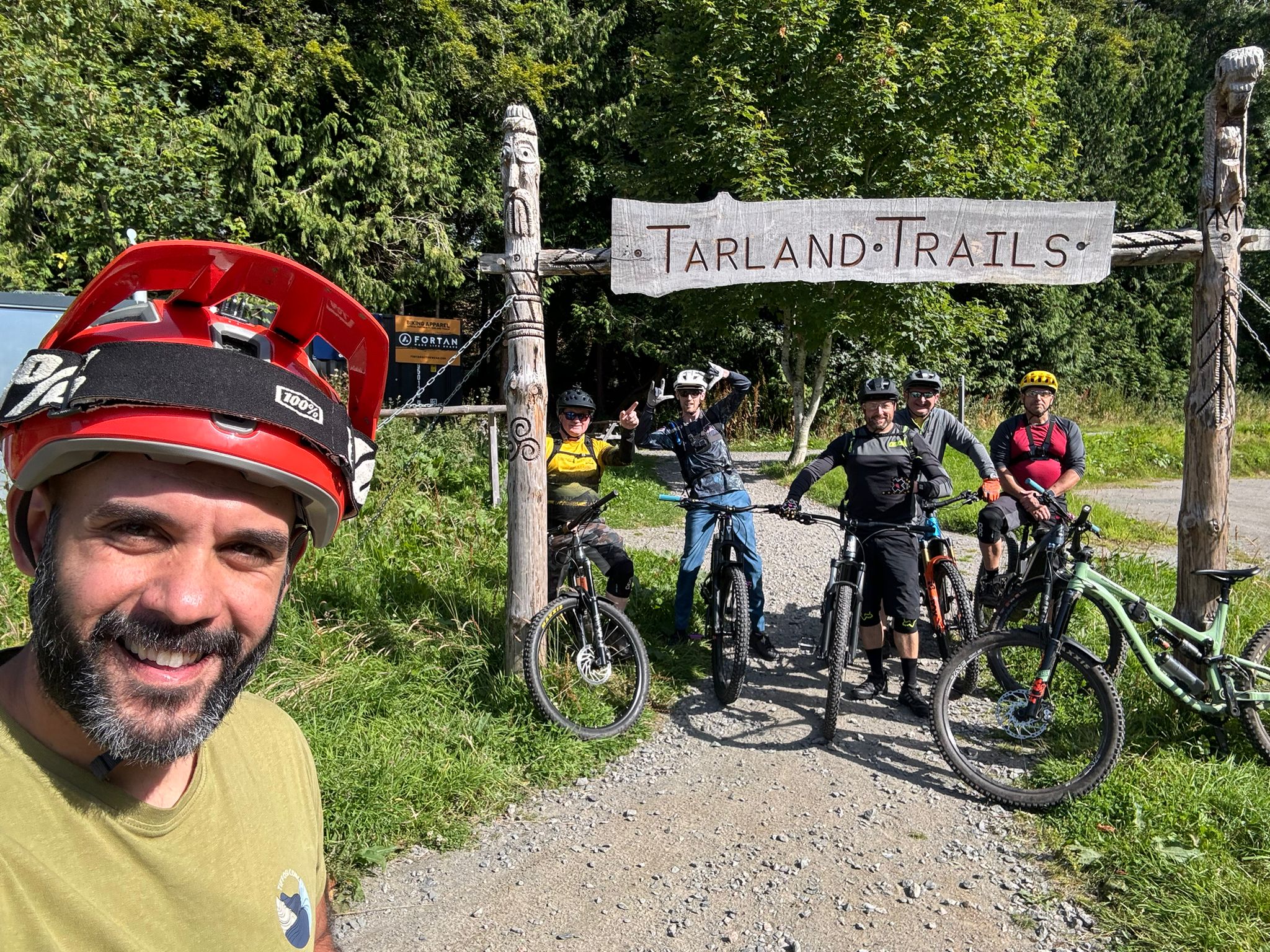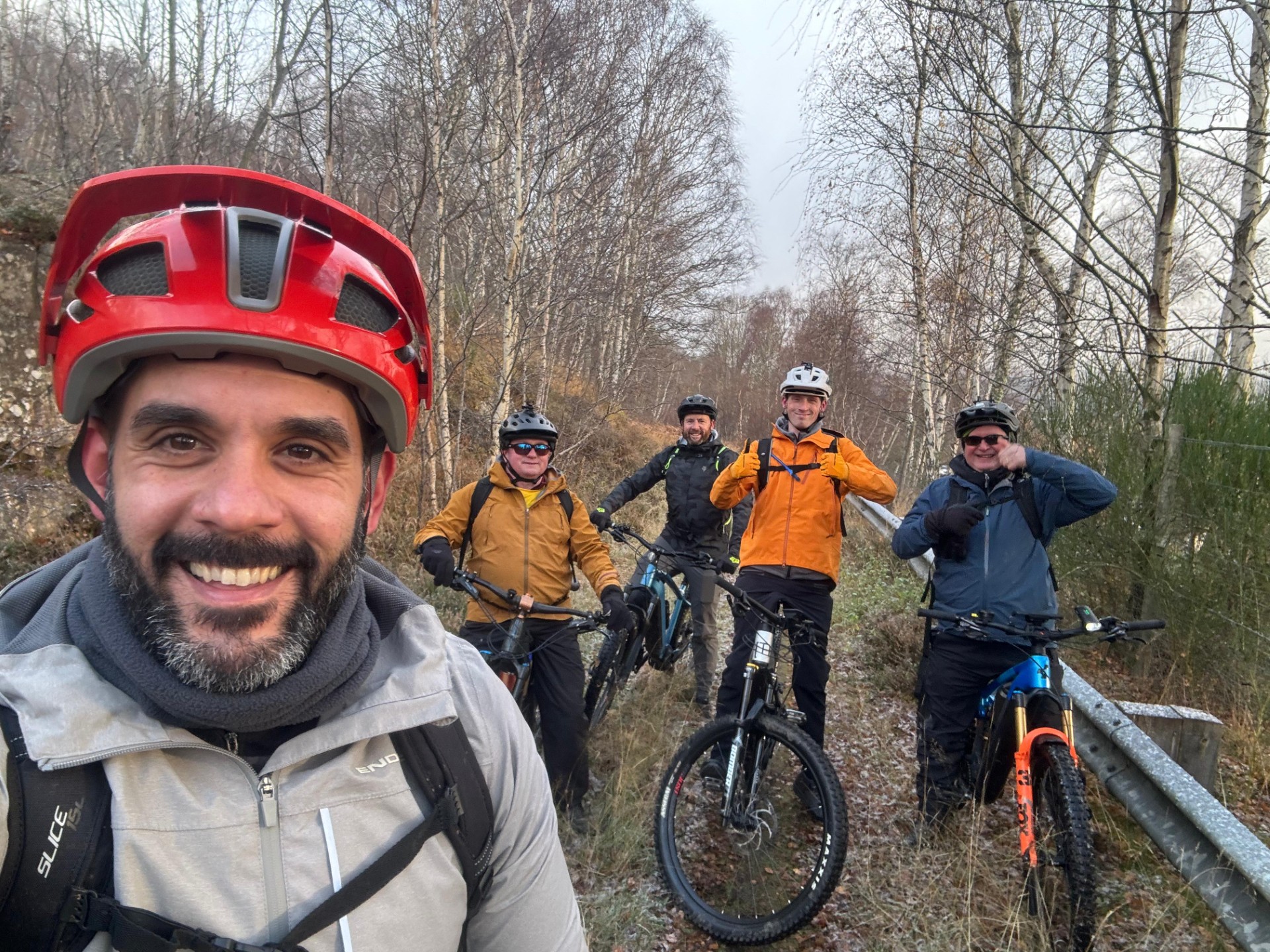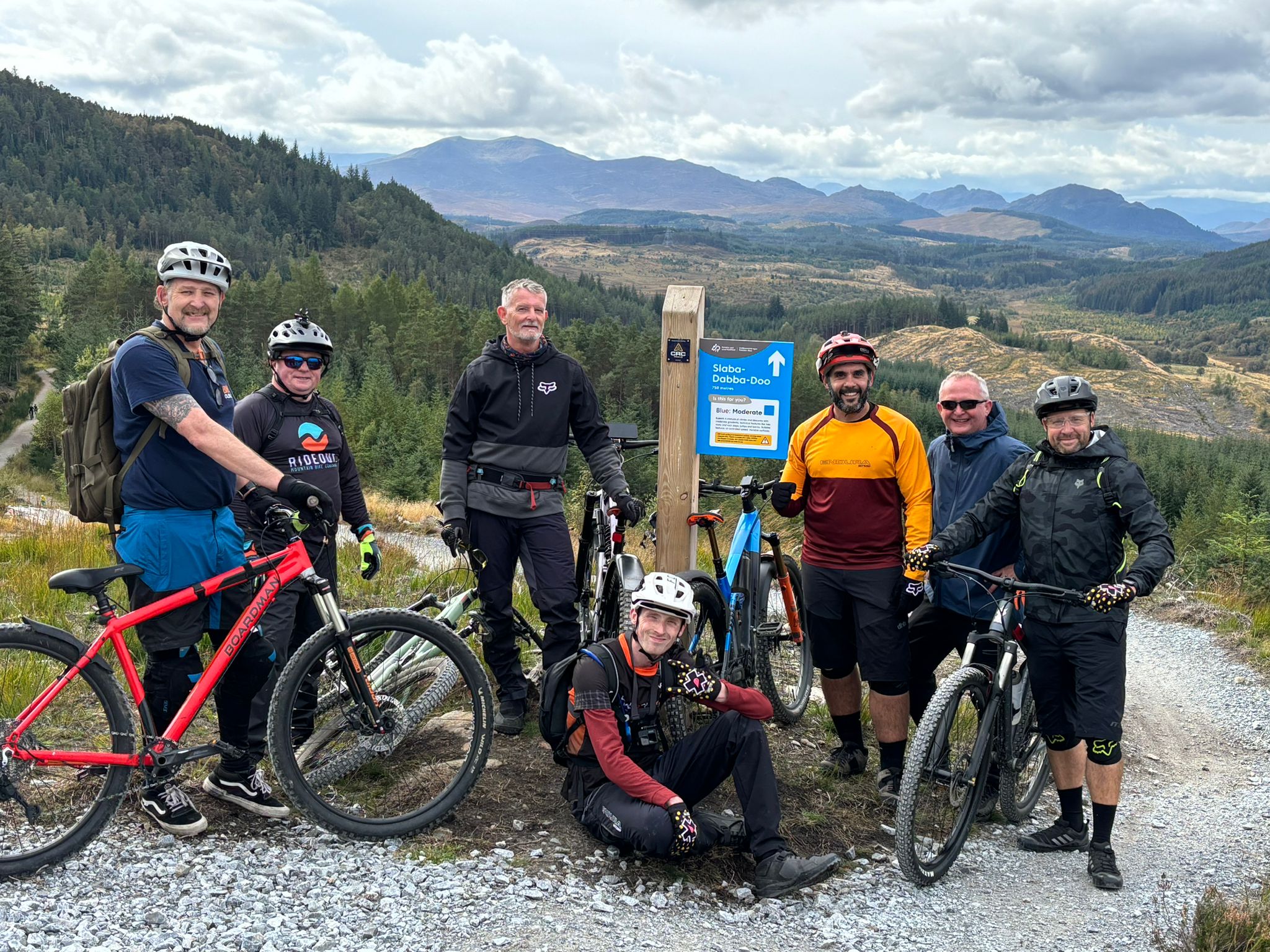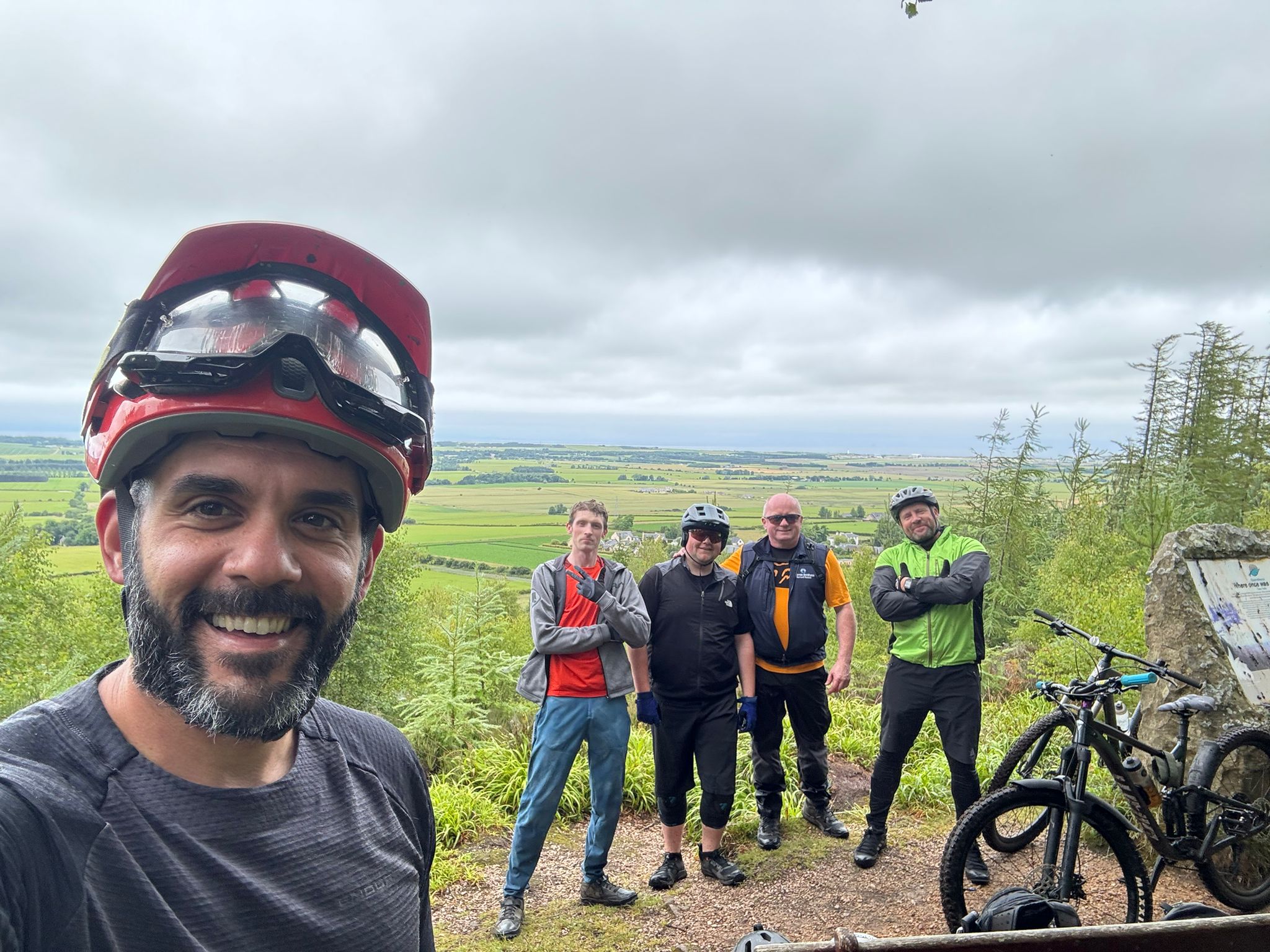The Power of Two Wheels: Mountain Biking and Mental Health

In recent years, the link between physical activity and mental health has gained well-deserved recognition. For me, this connection is more than a research finding; it’s something I’ve witnessed firsthand through my involvement with the Active Recovery Moray project.
When we first launched Active Recovery Moray, the vision was simple but profound: to use sport as a tool to support individuals living with mental health challenges and to help remove the stigma surrounding mental health in sports. Our first initiative was a weekly football session, and its success was nothing short of inspiring. The mutual trust, the shared sense of purpose, and the release of endorphins helped participants find moments of joy and relief in their recovery journeys. It’s incredible how a simple game of football could offer a safe space to connect, breathe, and heal.
But we didn’t stop there. Now, I’m leading a new chapter of the project: a mountain biking session. Although I’ve transitioned into a different professional role, staying connected with Active Recovery Moray through volunteering felt like the natural choice — not just for the participants, but for myself as well. It serves as a powerful reminder of the profound impact sport can have, the resilience of the human spirit, and the therapeutic beauty of nature.
Why Mountain Biking?
Mountain biking offers something uniquely therapeutic. There’s an undeniable rush of adrenaline as you navigate trails, and serenity of being surrounded by nature. For individuals struggling with mental health challenges, these elements can provide a much-needed escape, a sense of achievement, and a way to reconnect with the world around them.
However, the sessions aren’t exclusively for those with mental health challenges. We have participants from all walks of life, including those who are simply looking to meet new friends, find people with similar interests, or enjoy the social aspect of mountain biking. This diversity is part of what makes the sessions so powerful. It’s a space where anyone can feel welcome, united by a shared love for the outdoors and the camaraderie that sport provides. It’s a beautiful example of how sport can bring people together, regardless of their background or reasons for participating.
Every Monday morning, we gather at the pavilion at the Elgin Sports Community Trust for a coffee and a chat before heading out on our bikes. Sometimes, the conversations over coffee are just as important as the ride itself. These moments of connection set the tone for the session, creating a relaxed and welcoming environment where participants feel heard and supported.
Additionally, every six weeks, we take things a step further with a Sunday day trip. These outings allow us to explore new trails, share a meal, and spend quality time socializing as a group. They’re an opportunity to deepen connections, discover beautiful locations, and enjoy a full day of biking and camaraderie. These special sessions highlight the transformative power of combining adventure, nature, and community.
Unlike team sports like football, mountain biking also provides moments of solitude and self-reflection. You’re constantly engaging your body and mind, whether it’s maintaining balance, tackling a challenging climb, or simply taking in the view from the top of a hill. There’s a metaphorical parallel here: much like in life, you face challenges, push through tough stretches, and eventually reach moments of clarity and triumph.
The Impact So Far
Leading the mountain biking sessions has been deeply rewarding. Participants come from various walks of life, each carrying their own stories and struggles. For some, just showing up is an accomplishment; for others, it’s about pushing their limits or finding joy in a new hobby. Regardless of their goals, everyone leaves the sessions with a sense of accomplishment and community.
One participant recently shared that mountain biking has given them a sense of control they hadn’t felt in years. Another mentioned how the act of focusing on the trail ahead quiets the noise in their mind, even if only for a little while. These moments of connection and healing are why I’m so passionate about this work.
A Personal Reflection
Volunteering with Active Recovery Moray reminds me of why I got involved in this field in the first place. The project not only supports others but also allows me to stay grounded and connected to my values. In many ways, I’ve found my own form of therapy in these sessions. It’s humbling to see how something as simple as a bike ride through the hills can make a difference.
If there’s one thing I’ve learned, it’s that mental health recovery is not a straight path. It’s a journey with twists, turns, and plenty of bumps along the way. But with the right tools, community, and a little bit of nature, we can all find our way forward.
Looking Ahead
As we continue to grow the mountain biking sessions, I’m excited about the possibilities. Whether it’s expanding to include more participants, or exploring new trails, the potential to make an impact feels endless. We’re also exploring the opportunity to link with NHS Grampian services and social prescribing pathways to receive referrals from mental health services, broadening access for those who could benefit most. Most importantly, I’m hopeful that this initiative will inspire others to see sport and physical activity as powerful allies in mental health recovery and in breaking down the stigma that still exists in sports.
To anyone reading this who might be considering mountain biking or another form of physical activity as a way to support their mental health, my advice is simple: give it a try. The trail might be challenging at first, but every ride brings a new perspective, a new triumph, and a new reason to keep pedaling forward.
Let’s keep moving, one ride at a time.



